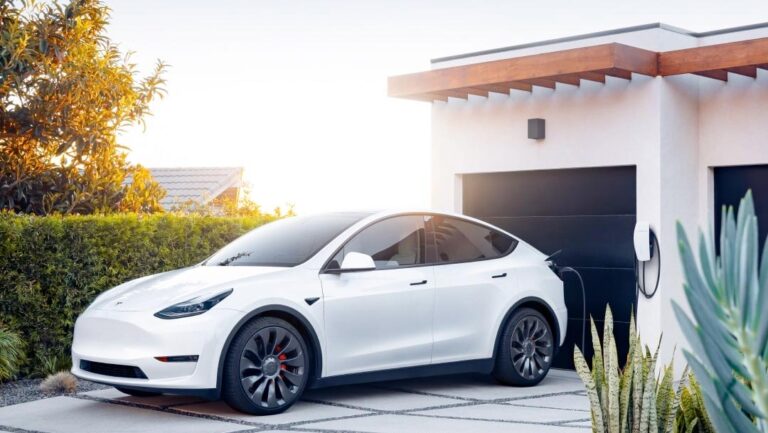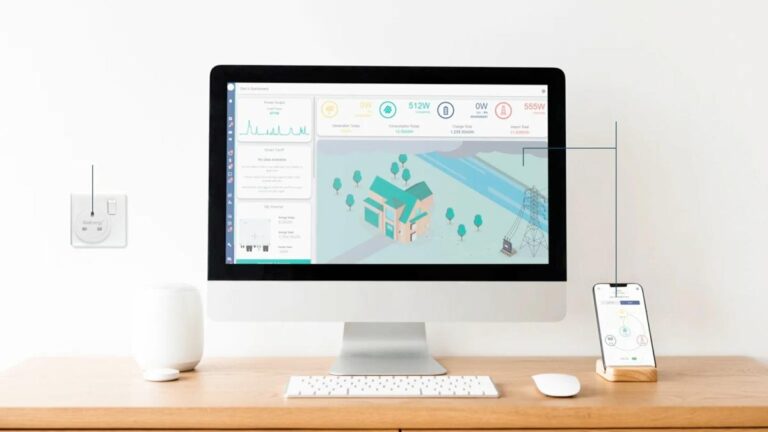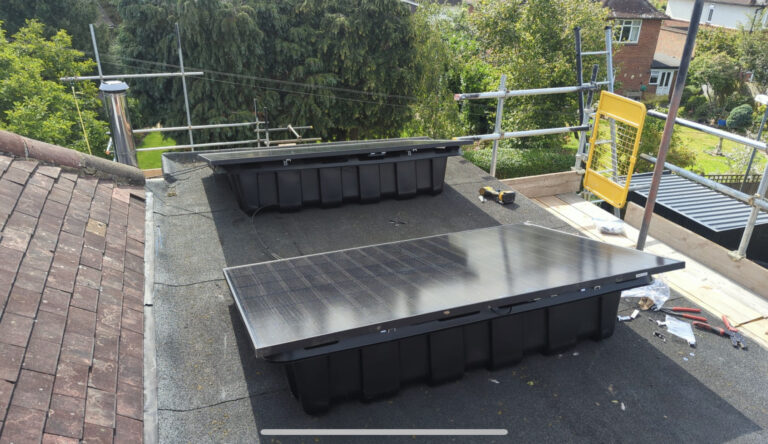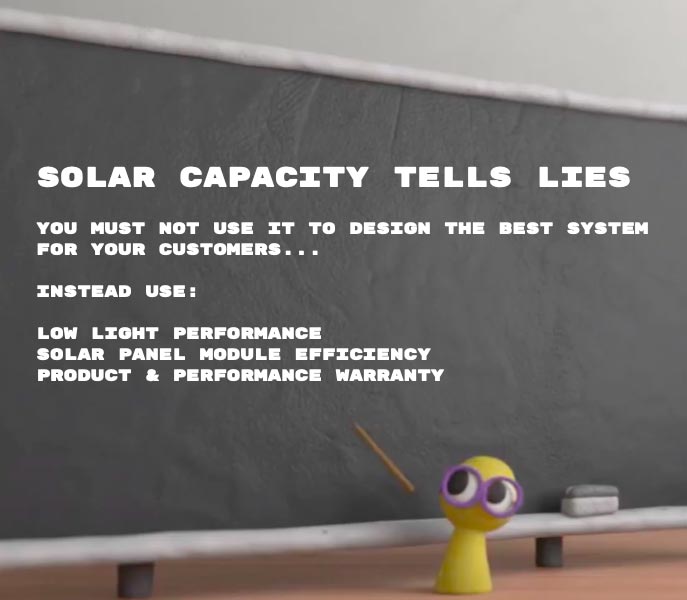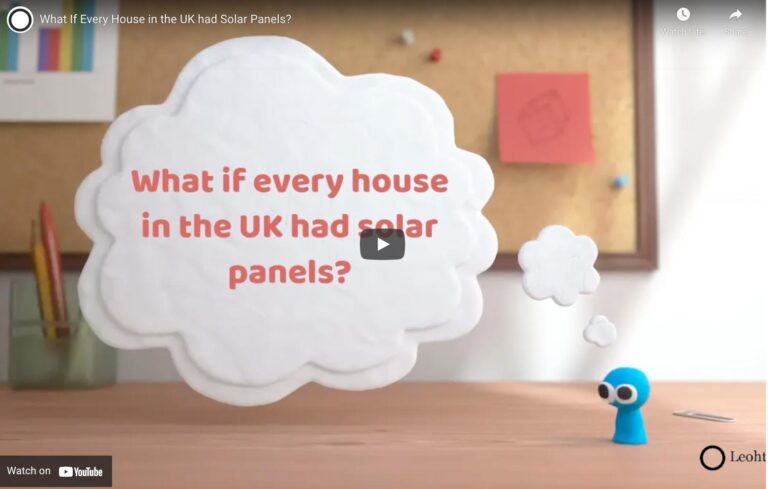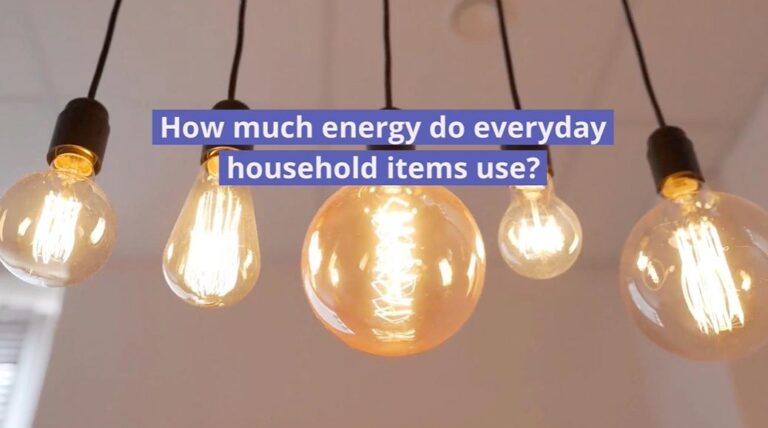February 2024 update: Solar panels, battery storage and a smart tariff can power your home potentially leading to negative electricity bills.
Find out which electricity tariff when combined with solar panels is best for you
Solar panels can generate enough energy to power a home. Depending on the space available, a solar panel installation could provide enough power over the year equivalent to running your home, your electric vehicle and a heat pump.
Of course, solar panels will not generate the energy required to power a home all of the time – this is where battery storage and a smart tariff are able to cover the shortfall – allowing exports to pay for imports.
If you get paid 8p/kWh for exporting and it costs 8p/kWh to charge the batteries at off-peak rates – the only question becomes – how much electricity can my home generate? If you can generate more than 100% of what you use, it’s likely your bill will be £0*
*excluding standing charge, bills can go negative
An average home in the UK uses 3638 kWh of electricity per year. A detached house will use 4153 kWh per year, according to the Energy Savings Trust.
Add an electric car and a heat pump and you could easily add 7000+ kWh per year on top of your electricity consumption.
Can solar panels be used to power a house?
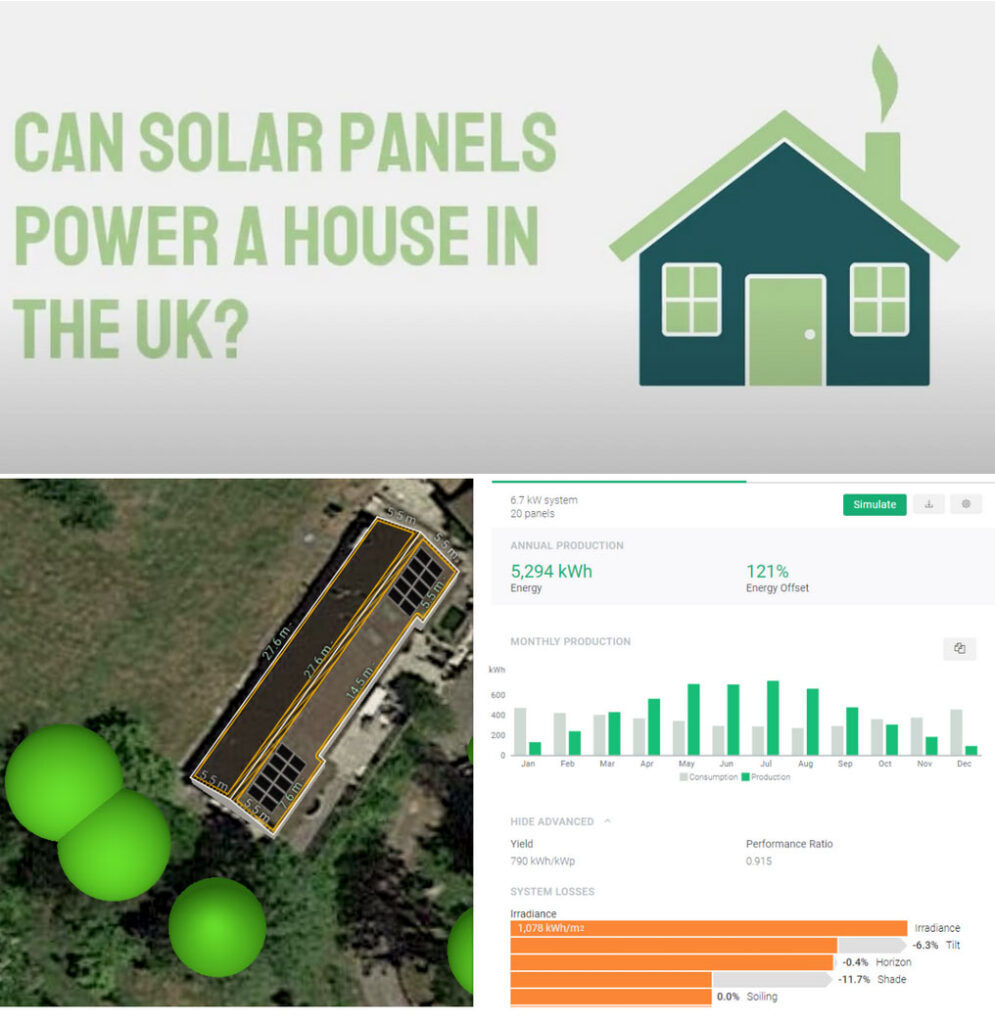
Was this customer able to power their home using solar?
Their energy consumption is 4375 KwH per year. They are able to generate 5294 kWh – 21% more electricity than they need.
Can they use the energy when they need it?
They have also installed 10.4 kWh of battery capacity, which means they can store excess electricity during the day for use throughout the night.
Exports will pay for imports – this customer’s electricity bill will be negative because he will be paid more for exports than he will pay for imports over the year.
This customer is unlikely to use electricity from the grid for day to day usage from March until mid-October.
As you can see from the graph above, solar panels do produce less during the winter months and peak during the summer.
You are paid a ‘Smart Export Guarantee’ from your supplier for every unit of electricity you export to the grid. If you can export enough during the summer months – this could pay for the shortfall in the winter.
Solar panels really can power your home, even during the winter if you can export enough energy in the summer to pay for the winter shortfall.
How much of my electricity usage could be covered by solar panels?
If you do not have a smart tariff, you may want to understand how much energy appliances use so you can stagger the usage so that you are not using more at any one time than your solar panels and battery can provide.
If you have a smart tariff – it may not matter – all imports might be being paid for by exporting at other times of the year.
| Household Item | Energy rating | Typical usage | Energy used in kWh | Cost (April 2022 Price Cap) |
|---|---|---|---|---|
| Kettle (Russel Hobbs) | 3000W | 1 minute | 0.05 kWh | 1.5p |
| Nepresso Coffee Machine | 1710W | 90 seconds (per cup) | 0.043 kWh | 1.3p |
| Blender | 400W | 5 minutes | 0.033 kWh | 1p |
| Toaster (2 slice) | 900W | 5 minutes | 0.075 kWh | 2.2p |
| Toaster (4 slice) | 2000W | 5 minutes | 0.17 kWh | 5.1p |
| Fridge freezer | 150W | 8 hours (33% duty cycle) | 1.2 kWh | 36.2p per day |
| American Fridge Freezer | 250W | 8 hours (33% duty cycle) | 2 kWh | 60.4p per day |
| Freezer | 100W | 8 hours (33% duty cycle) | 0.8 kWh | 24.1p per day |
| Fridge | 100W | 8 hours (33% duty cycle) | 0.8 kWh | 24.1p per day |
| Laptop | 50W | 8 hours | 0.4 kWh | 12p |
| Charge an iPhone for one year | Up to 5W | Everyday | 1.8 kWh | 54.3p per year Just over 1p a week! |
| 55" Samsung TV | 110W | 3 hours | 0.33 kWh | 10p |
| 75" Samsung TV | 154W | 3 hours | 0.46 kWh | 13.9p |
| Single electric oven | 3000W | 1 hour | 3 kWh | 90.6p per hour |
| Patio Heater | 2000W | 1 hour | 2 kWh | 60.4p per hour |
| Microwave | 1500W | 3 minutes | 0.075 kWh | 2.2p |
| Iron | 3000W | 20 minutes | 1 kWh | 30.2p |
| Dishwasher | 2200W | 2 hours | 4.4 kWh | £1.33 (per day?) |
| Washing Machine | 2200W | 1 hour | 2.2 kWh | 66p |
| Tumble dryer (modern) | 800W | 45 minutes | 0.6 kWh | 18.1p |
| 10 x Lightbulbs - incandescent 700 lumens x 8 hours a day | 600W | 8 hours | 4.8 kWh | £1.45 per day |
| 10 x Lightbulbs - LED 700 lumens x 8 hours a day | 100W | 8 hours | 0.8 kWh | 24.1p per day |
| Desktop computer | Up to 300W | 8 hours | 2.4 kWh | 72.5p |
| Hot tub | Up to 6000W | 1 hour | 6 kWh | £1.81 |
Can solar panels power a house in the UK?
Before starting Leoht in 2020, I designed and installed solar panels on my parent’s home with enough battery capacity to make the most of their generation and usage. The long term aim is to reduce their living costs to as close to £0 as possible.
I took a video of their smart meter when visiting in April 2022.
(Note this was taken in April, months before solar panels generate their maximum in the summer).
My mum is quite keen on using as much solar and battery as possible and staggers household energy usage to maximise the use of their own energy. However, even I was surprised that even in the middle of April, they barely used the grid! and on one of those days – I was charging Leoht’s Tesla.
How many solar panels do I need? Try our calculator and find out in 30 seconds.



